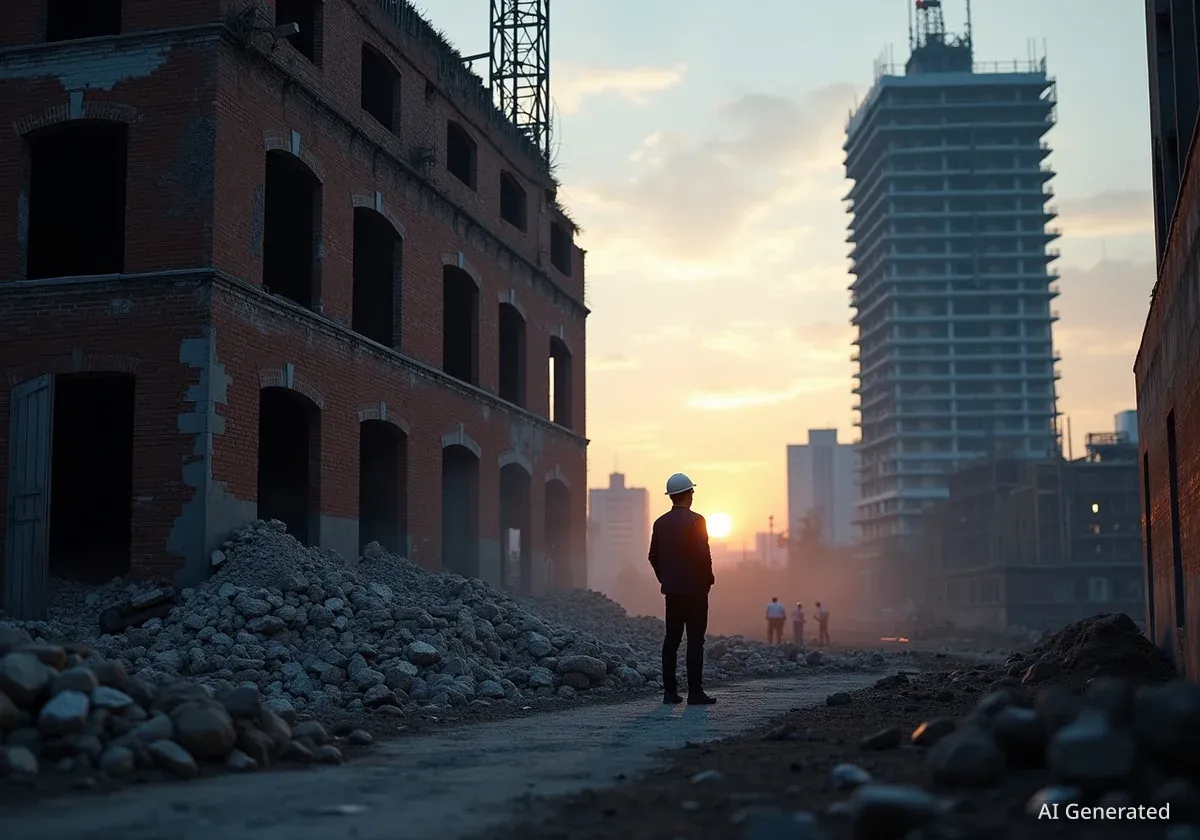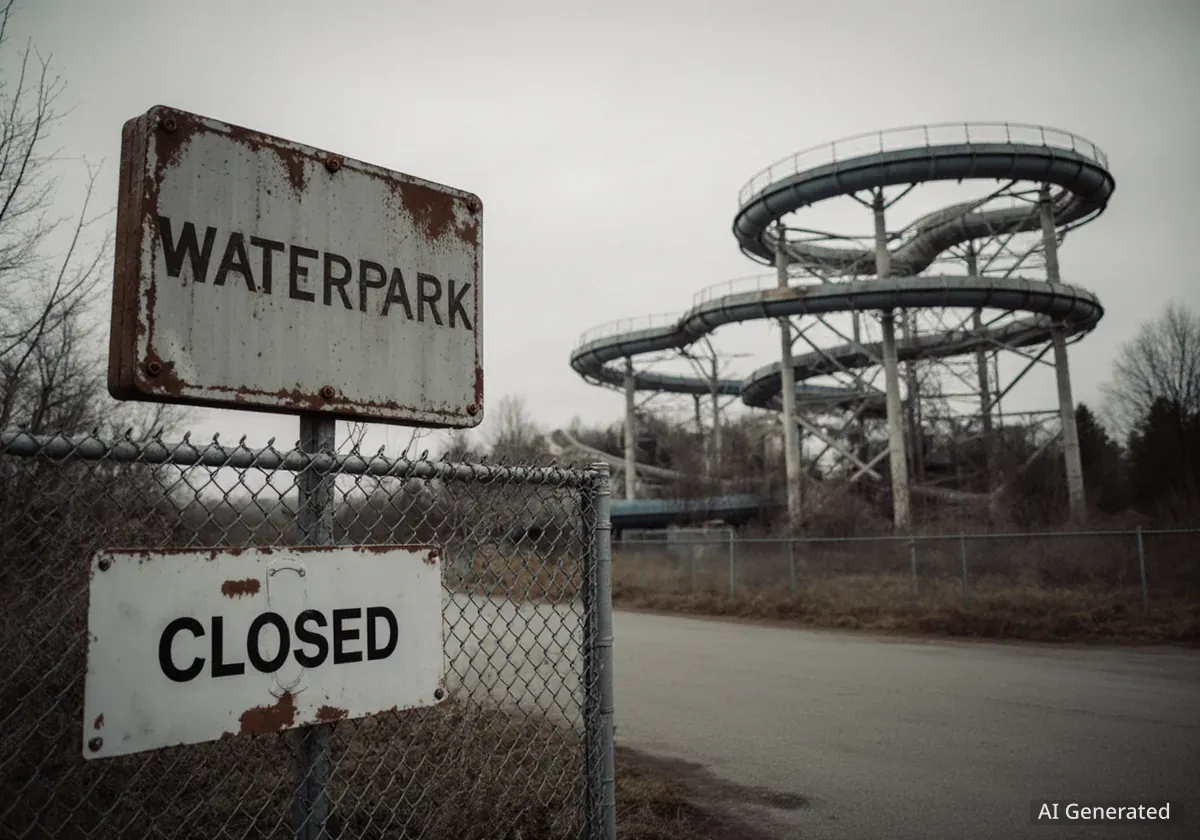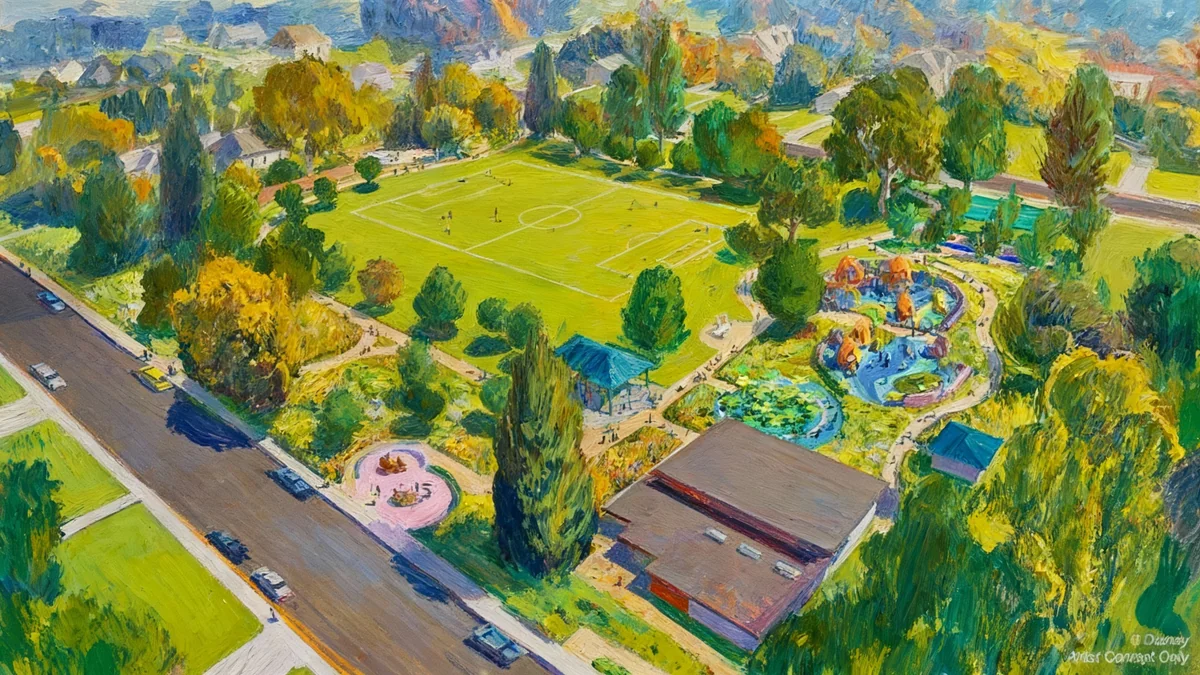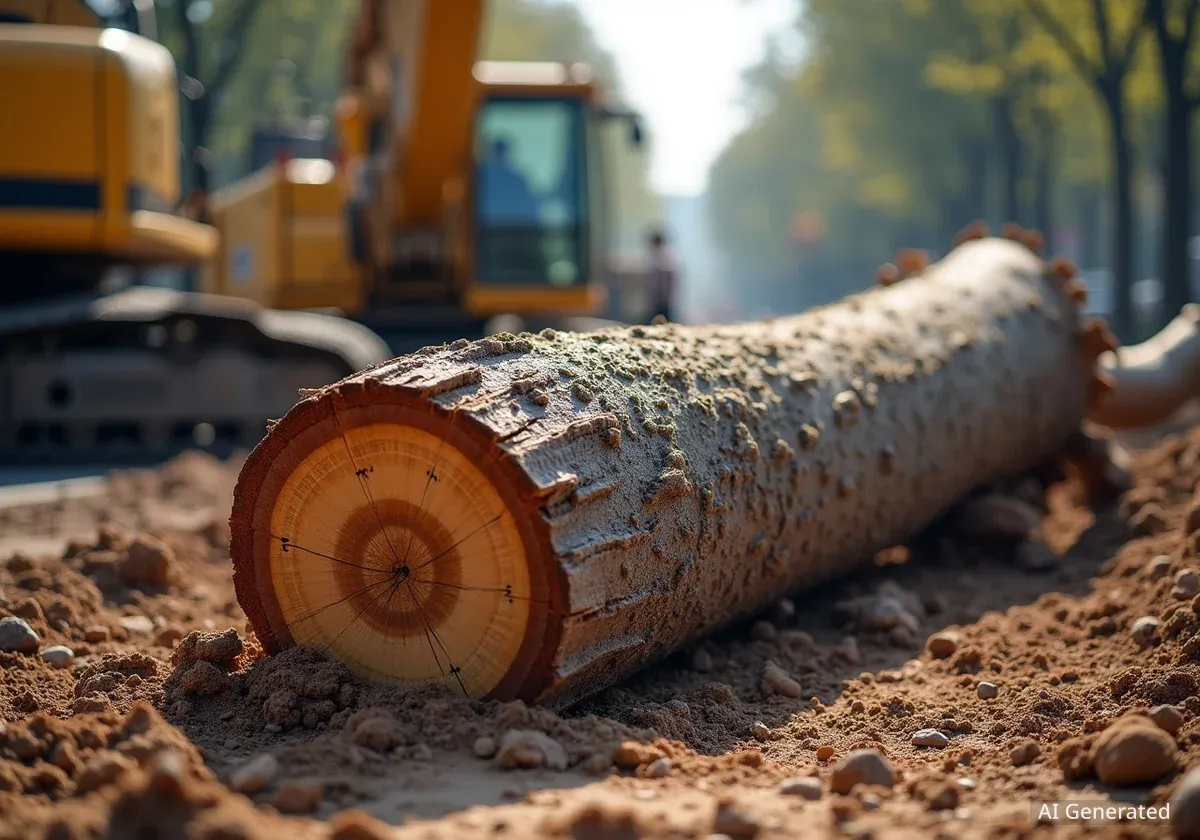A historic building in Chattanooga, Tennessee, known as the Chattanooga Car Barn, is being demolished to make way for a new Drury Hotel. This development has sparked debate among local residents and preservation groups who advocate for the site's historical significance against those who support new urban growth.
Key Takeaways
- Demolition of the Chattanooga Car Barn is underway for a new Drury Hotel.
- The building has a long history, dating back to 1876 as a railway facility.
- Local residents largely favor preservation over new development.
- Despite being on the National Register of Historic Places, the building lacks city landmark protection.
History of the Chattanooga Car Barn
The Chattanooga Car Barn holds a notable place in the city's transportation history. It first opened its doors between 1876 and 1878 as the Chattanooga Street Railway Company. Initially, it housed horses and mules for the Chattanooga Carriage Company.
According to the Chattanooga Library, the facility underwent a name change to the Chattanooga Railway Company in 1878. A significant modernization occurred in 1887 when horse-drawn cars were replaced with electric car operations. This marked a major step in the city's public transit evolution.
Historic Timeline
- 1876-1878: Operated as Chattanooga Street Railway Company.
- 1878: Renamed Chattanooga Railway Company.
- 1887: Converted to electric streetcar operations.
- 1947: Electric trolleys ceased, building housed CARTA buses.
- 1978: CARTA sold the property.
- Post-1978: Became the Sportsbarn gym.
The building continued to serve electric street trolleys until 1947. After this, its function shifted to housing buses for the Chattanooga Area Regional Transportation Authority (CARTA). This progression highlights the Car Barn's continuous role in Chattanooga's public transportation for over seven decades.
Transition and Current Demolition
In 1978, CARTA sold the property when its bus garage moved to Wilcox Boulevard. Following this sale, the historic structure was repurposed and became the Sportsbarn gym, a well-known local establishment. This usage continued for many years, giving the building another chapter in its long history.
Currently, demolition work has started on the site. Half of the building has already been torn down. A sign at the location confirms that a new Drury Hotel will be constructed there. This ongoing work has brought the debate over preservation versus development to the forefront.
"What was once known as the Car Barn that would house the horses and mules for the Chattanooga Carriage Company has now become pieces of rubble," observed a local preservationist.
Context on Drury Hotels
Drury Hotels is a family-owned and operated hotel chain based in the United States. Known for its mid-range to upper-mid-range properties, Drury Hotels often focuses on providing amenities such as free breakfast, evening receptions, and Wi-Fi. The company has a history of developing properties in urban and suburban areas, sometimes involving the redevelopment of existing sites.
Community Response and Preservation Efforts
The demolition has generated significant public feedback. A recent survey showed strong community preference for preserving the historic site. Out of more than 100 participants, 86% voted for preservation, while only 14% supported new growth and development.
Christian Siler, a resident who voted for preservation, expressed his view that such sites contribute to the city's character. The owner of the Chattanooga Carriage Company also shared a Facebook post describing the situation as "heartbreaking," emphasizing the emotional connection many have to the Car Barn's legacy.
Challenges to Preservation
Elijah Cameron from the Bessie Smith Cultural Center stated it is a shame to lose historical sites in Chattanooga. The building is listed on the National Register of Historic Places. However, this designation does not fully protect it from significant alterations or demolition.
Preserve Chattanooga, a local advocacy group, explains that for a building to be truly protected from such changes, it needs to be designated as a city landmark. Official Chattanooga landmarks, such as the Walnut Street Bridge, Coolidge Park, and the Choo Choo Hotel, have this stronger protection.
- National Register of Historic Places: Recognizes historical significance but offers limited protection against private demolition.
- City Landmark Status: Provides stronger legal protection against demolition or major changes.
City's Stance on Development
TravModo reached out to the City of Chattanooga regarding the concerns raised by residents and preservation groups. Mayor Tim Kelly's office provided a statement acknowledging the community's input and the city's commitment to balanced growth.
The city's position often involves weighing the benefits of new economic development, such as job creation and increased tax revenue, against the desire to protect historical assets. This balance is a common challenge in many growing urban areas. The decision to proceed with the Drury Hotel development reflects a choice to prioritize a specific type of economic growth for this site.
The future of the Chattanooga Car Barn site is now clear: a new hotel will stand where a piece of Chattanooga's transportation history once thrived. This transformation highlights the ongoing dialogue between urban development and historical preservation in cities across the country.





